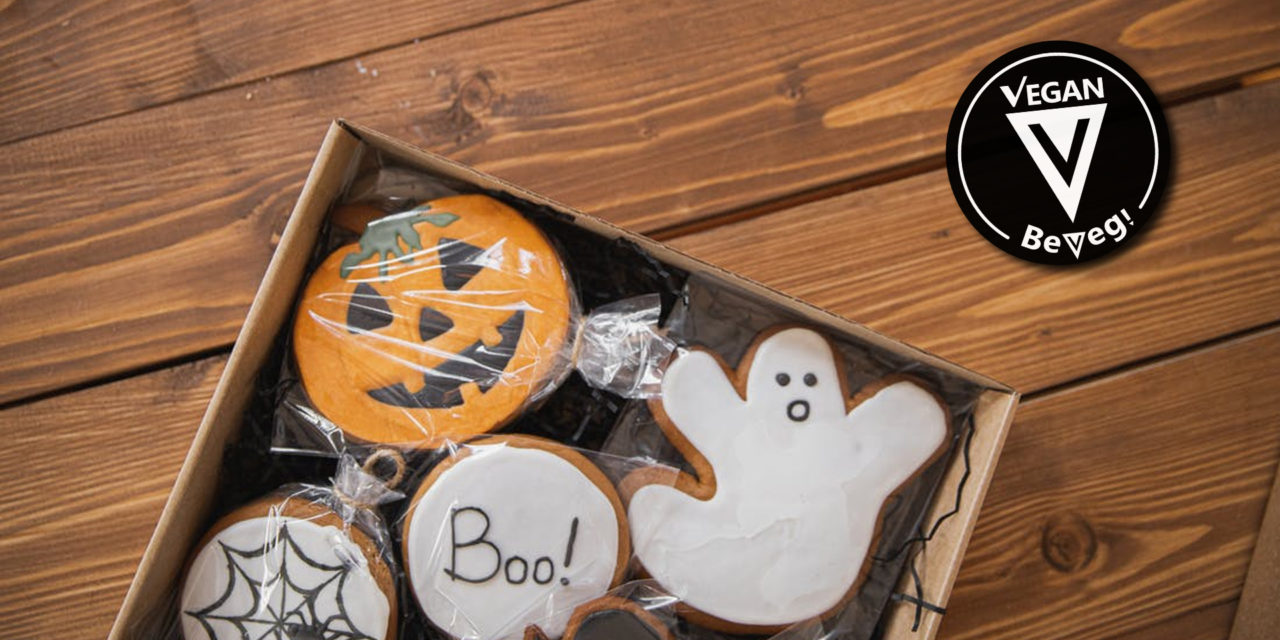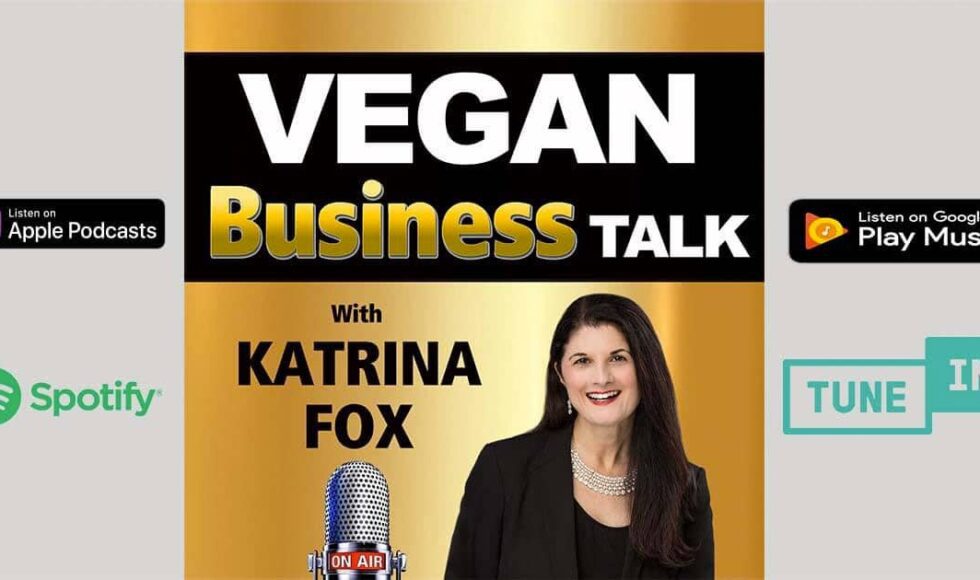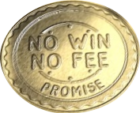What does vegan product certification mean and how do you get your vegan product certified?
There is no shortage of vegan products these days, it seems with every trip to the supermarket a new brand is featured in the specialty foods aisle. Many products will display varying icons to identify as vegan. But what is behind that vegan label? In an effort to better understand the vegan labeling process and the regulating standards behind it, vKind spoke with Carissa Kranz, CEO and founding attorney of BeVeg, an accreditation firm based in the US.
Food labels are valuable for many consumers, especially those with dietary restrictions. What is important to know about vegan certified products?
Vegan is not defined in any one governmental jurisdiction in the world, and right now vegan claims lack credibility and accountability without certification. There have been cases when a brand has claimed their product was vegan but upon inspection by BeVeg, one realizes that the product contains non-vegan source ingredients, or was subject to spillover cross-contamination.
Under the law this means that products can legally continue to market themselves as vegan even if the ingredients used by their supplier are deemed not vegan by BeVeg. That means vegan claims that are not certified cannot be trusted and can be misleading to the consumer. As the law stands now, products made of sugar using bone char, or natural coloring using insect juice can legally call themselves vegan without legal repercussions.
The only way for a customer to trust a vegan claim is if the brand they are buying is certified vegan by an accredited vegan trademark standard. If the standard is accredited it means that not only are the products audited for compliance but so is the standard owner. The BeVeg vegan trademark is the first, and to date the only, ISO/IEC 17065:2012 accredited mark for a vegan specific certification standard. The BeVeg vegan scheme was drafted by lawyers and is the only law firm issued vegan symbol in the world. Lawyers bring credibility and integrity to the now defined vegan certification process.
When a product is vegan certified by BeVeg, the consumer has confidence that the product was fully vetted to the highest of industry standards to ensure vegan verification. This means the manufacturer and the brand owner took the vegan claim as seriously as they would take any other food safety or product safety claim. Before BeVeg, there was no industry defined vegan standard and scheme to follow. Consumers should feel at ease knowing the BeVeg certified vegan product they are considering is vegan as defined by industry best practices.
When someone buys a BeVeg certified product they should feel absolutely certain that what they’re buying was thoroughly audited, verified, and tested prior to being labeled certified vegan to ensure the final product is free of ingredients of animal origin and not tested on animals.

What categories does BeVeg certify?
All the BeVeg vegan programs can be found at www.beveg.com under vegan certification programs. The main programs outlined include vegan product certification (food, beverages, vitamins, cosmetic, makeup, perfumes, personal care items, textiles, fashion furniture, etc.), vegan alcohol certification (wine, beer, liquor/spirits), vegan manufacturing facilities and private label, as well as vegan services.
What does the vegan certification process entail?
The vegan certification process consists of disclosing all ingredients and suppliers, inquiring about the process to packaging, and the facilities used to make the products, including any third-party outsourcing.
After the paperwork process is complete, there are a series of affidavits and legal documents to be signed to ensure all things disclosed are true and correct, and not fraudulently disclosed. The paperwork disclosure process keeps companies legally accountable to their work and responsible for fraudulent disclosure or intentional failure to disclose. If the paperwork process checks out, we send an auditor to the site to continue the process according to a specified audit checklist.
The auditor is trained to follow the checklist to ensure vegan quality control. We may also do some onsite lab testing of the product or ask you to send it to a verified ISO 17025 lab. Audits and lab testing are important to assess risk for cross-contamination and then confirm no cross-contamination.
We consider packaging, storage, wash rooms, pre-packaging procedures and much more as we verify compliance with our vegan standard. Based on the audit findings, a report will be written outlining any non-conformities and risk factors, which then determines how often an audit is necessary. If the facility is a dedicated vegan facility, an audit one a year is usually enough. If the facility is determined to have high risk to vegan integrity, there will be additional audits or lab tests required (planned and/or surveillance).
All of these decisions are custom-tailored for the client based on audit findings by the BeVeg certifications committee. After all tests and inspections are passed, the applicant is granted certification and licensed use of the global trademark renewed annually to ensure ongoing vegan quality control and surveillance.
Before applying for vegan certification, what are some practices product makers should have in place?
We ask for a list of ingredients and suppliers, manufacturing process procedures, and that the application form be fully filled out. The applicant should understand what it means to be vegan compliant and prepare their ingredients and production process accordingly.
Once the practices are confirmed in place through the paperwork application process, there is an audit arranged. Before the audit, BeVeg sends the applicant an introductory Pre-Audit Plan outlining what to expect and how long the audit will take.
During the on-site audit the company should have all information ready for viewing, and be prepared to give the auditor access to review the production facility including but not limited to receiving, R&D, ingredient storage, entire processing facility, packaging, warehouse, office space, etc. We take the vegan certification process seriously and the product makers should be prepared to take their vegan claims seriously, as it should not be about the ability to advertise vegan for increased sales, but the integrity of vegan claims that the consumer can trust.
How important would you say is vegan certification for a vegan product or service in terms of consumer value?
Absolutely necessary. The consumer is entitled to honest information. Noone wants to be misled. All consumers want peace of mind. You do not have to be a vegan to want to buy a vegan product and know with absolute certainty that the claim is truthful. Most consumers are ingredient conscious and most shoppers are concerned with truth in labeling.
The statistics indicate that 80% of those buying vegan products or patron vegan restaurants are not self-proclaimed vegans. They are veg-curious and with all other things being equal, they will choose the vegan option over the non-vegan option when given the choice. Nobody wants to be lied to. It is critical that vegan claims are certified so they can be trusted. Brands want to build brand trust, and brand trust comes with consumer confidence.
Consumers, educated or not, do not deserve to be misled by unaccountable claims marketing vegan but unwilling to verify vegan because they wish to jump on the plant-based marketing bandwagon to increase sales. Vegan certification is not a high cost in the scheme of things and companies should have no problem going through the process of disclosure and transparency to ensure consumer transparency and brand trustworthiness.
What moved you to create BeVeg?
I’m a vegan from birth, and I have spent my entire life scrutinizing labels and ingredients to ensure my food is vegan. I was that girl at Subway who held up an entire line of rolling eyes because I needed them to change their gloves before they made my sandwich to ensure no cross-contamination. I was that young girl who decided to write Skittles a letter to remove gelatin (which they did, though I do not know if this is because of my letter) because I did not want to eat trace animal byproducts or animal bones on a playdate. I was horrified to learn the wine I enjoyed with my dinner may have fish bladder, animal bones, and other suspect animal parts.
I wanted a verified vegan symbol I could trust. As veganism became more popular and vegan labeling started appearing on product packaging, I was thrilled and relieved. Finally! My quest for vegan products without any animal exploitation will be easier. Wrong! My research yielded facts that any vegan or non-vegan would take issue with. Facts such as, anyone can claim vegan and not be held accountable for misleading vegan claims.
As an ethical vegan, creating the BeVeg vegan certified symbol was easy. BeVeg and the vegan cause is an expression of my inner truth. When you speak your truth, you do not have to sell, you just need to be. BeVeg is not about me, but the BeVeg vegan symbol is an extension of me as a legal concept that came to me and through me by just being vegan.
As I did my legal research and due diligence, I learned the law protects trade secrets to the detriment of consumer transparency. That means “incidental ingredients” from the manufacturing process that may leave trace animal products in the final product do not have to be disclosed. It also means “insignificant ingredients” that are less than 0.5 grams per serving, can be rounded down to zero and not disclosed. Ingredients of less than 1 percent may be listed in any order, and “natural” colorings and flavourings do not need to be itemized, which is often misleading when it comes to knowing what is really in your product.
Meanwhile, the Tobacco and Trade Bureau (TTB), which regulates alcohol, is worse for vegans. The TTB has zero ingredient and process disclosure requirements. There are close to 65 ingredient additives that can be in your wine, beer, or liquor, and none of it has to be disclosed. This was very upsetting to me, as I thought all wine, beer, and spirits were vegan. Alcohol can have non-vegan additives like yeast with a dairy derivative, or sugar with bone char, or even be made with egg whites, fish bladder (isinglass), and animal bones (gelatin) — just to name a few.
The BeVeg vegan certification firm created a free app, which has been called the “ultimate alcohol guide.” You can download the app on the Apple app store or the Google Play store.
What advice would you have to vegan professionals wanting to set up a vegan services practice?
If you believe in something and your passion drives your purpose, it will become your profession, and you will be successful. This is the law of divine compensation. If you feel called to do something, do it with conviction. We have a short period of time on this planet to live in service of this planet and of our purpose. The biggest mistake you could ever make is allowing fear of failure to prevent your abundant success.
We’ve all heard the saying “the greatest risk is not taking any risk at all.” This is true, as all things are possible. Those that achieve greatness are those that take risks on themselves and on life. You have a responsibility to bet on yourself. If you live within your comfort zone, your world shrinks. If you push yourself outside of your comfort zone, your life expands. When your life expands you create room to invite more of the creative energy into your world, which inspires your next “risk” or creation. One thing really does lead to another.
If you have a burst of inspiration, take a risk on that burning desire, as that passion is thrusting you towards your life’s purpose. However, proceed with an open mind. Oftentimes, what you think you are being called to do or say may not be exactly on point. What matters is that you follow the direction of the calling, which is guiding you to the exact place where you are supposed to be.
In life, you can expect to meet naysayers and detractors along the way. Those people will tell you things like, “It’s not practical. You’ll never make it. Few get there. Don’t lose a good thing. The odds are against you.” What you need to do is strike those distracting thoughts from your headspace and stay away from those energies. You can make it. You can do it. Someone will do it. Others have made it. So why not you? You will never regret doing something born out of inspiration. It is an opportunity to grow, expand, and create.
If you dismiss a burning passion within yourself, you will regret not being bold enough to live out your life on this planet at the full potential of what is YOU. Live life to the fullest. That means take risks. If you don’t risk vulnerability, you will never love deeply or live abundantly. The Universe provides, so take that risk and set up that vegan business that serves a higher planetary purpose. That’s my advice! Information on the BeVeg vegan standards and legal perspective of vegan labeling laws that demand credible vegan certification seals can be found on www.beveg.com.
What does vegan product certification mean and how do you get your vegan product certified?
There is no shortage of vegan products these days, it seems with every trip to the supermarket a new brand is featured in the specialty foods aisle. Many products will display varying icons to identify as vegan. But what is behind that vegan label? In an effort to better understand the vegan labeling process and the regulating standards behind it, vKind spoke with Carissa Kranz, CEO and founding attorney of BeVeg, an accreditation firm based in the US.
Food labels are valuable for many consumers, especially those with dietary restrictions. What is important to know about vegan certified products?
Vegan is not defined in any one governmental jurisdiction in the world, and right now vegan claims lack credibility and accountability without certification. There have been cases when a brand has claimed their product was vegan but upon inspection by BeVeg, one realizes that the product contains non-vegan source ingredients, or was subject to spillover cross-contamination.
Under the law this means that products can legally continue to market themselves as vegan even if the ingredients used by their supplier are deemed not vegan by BeVeg. That means vegan claims that are not certified cannot be trusted and can be misleading to the consumer. As the law stands now, products made of sugar using bone char, or natural coloring using insect juice can legally call themselves vegan without legal repercussions.
The only way for a customer to trust a vegan claim is if the brand they are buying is certified vegan by an accredited vegan trademark standard. If the standard is accredited it means that not only are the products audited for compliance but so is the standard owner. The BeVeg vegan trademark is the first, and to date the only, ISO/IEC 17065:2012 accredited mark for a vegan specific certification standard. The BeVeg vegan scheme was drafted by lawyers and is the only law firm issued vegan symbol in the world. Lawyers bring credibility and integrity to the now defined vegan certification process.
When a product is vegan certified by BeVeg, the consumer has confidence that the product was fully vetted to the highest of industry standards to ensure vegan verification. This means the manufacturer and the brand owner took the vegan claim as seriously as they would take any other food safety or product safety claim. Before BeVeg, there was no industry defined vegan standard and scheme to follow. Consumers should feel at ease knowing the BeVeg certified vegan product they are considering is vegan as defined by industry best practices.
When someone buys a BeVeg certified product they should feel absolutely certain that what they’re buying was thoroughly audited, verified, and tested prior to being labeled certified vegan to ensure the final product is free of ingredients of animal origin and not tested on animals.

What categories does BeVeg certify?
All the BeVeg vegan programs can be found at www.beveg.com under vegan certification programs. The main programs outlined include vegan product certification (food, beverages, vitamins, cosmetic, makeup, perfumes, personal care items, textiles, fashion furniture, etc.), vegan alcohol certification (wine, beer, liquor/spirits), vegan manufacturing facilities and private label, as well as vegan services.
What does the vegan certification process entail?
The vegan certification process consists of disclosing all ingredients and suppliers, inquiring about the process to packaging, and the facilities used to make the products, including any third-party outsourcing.
After the paperwork process is complete, there are a series of affidavits and legal documents to be signed to ensure all things disclosed are true and correct, and not fraudulently disclosed. The paperwork disclosure process keeps companies legally accountable to their work and responsible for fraudulent disclosure or intentional failure to disclose. If the paperwork process checks out, we send an auditor to the site to continue the process according to a specified audit checklist.
The auditor is trained to follow the checklist to ensure vegan quality control. We may also do some onsite lab testing of the product or ask you to send it to a verified ISO 17025 lab. Audits and lab testing are important to assess risk for cross-contamination and then confirm no cross-contamination.
We consider packaging, storage, wash rooms, pre-packaging procedures and much more as we verify compliance with our vegan standard. Based on the audit findings, a report will be written outlining any non-conformities and risk factors, which then determines how often an audit is necessary. If the facility is a dedicated vegan facility, an audit one a year is usually enough. If the facility is determined to have high risk to vegan integrity, there will be additional audits or lab tests required (planned and/or surveillance).
All of these decisions are custom-tailored for the client based on audit findings by the BeVeg certifications committee. After all tests and inspections are passed, the applicant is granted certification and licensed use of the global trademark renewed annually to ensure ongoing vegan quality control and surveillance.
Before applying for vegan certification, what are some practices product makers should have in place?
We ask for a list of ingredients and suppliers, manufacturing process procedures, and that the application form be fully filled out. The applicant should understand what it means to be vegan compliant and prepare their ingredients and production process accordingly.
Once the practices are confirmed in place through the paperwork application process, there is an audit arranged. Before the audit, BeVeg sends the applicant an introductory Pre-Audit Plan outlining what to expect and how long the audit will take.
During the on-site audit the company should have all information ready for viewing, and be prepared to give the auditor access to review the production facility including but not limited to receiving, R&D, ingredient storage, entire processing facility, packaging, warehouse, office space, etc. We take the vegan certification process seriously and the product makers should be prepared to take their vegan claims seriously, as it should not be about the ability to advertise vegan for increased sales, but the integrity of vegan claims that the consumer can trust.
How important would you say is vegan certification for a vegan product or service in terms of consumer value?
Absolutely necessary. The consumer is entitled to honest information. Noone wants to be misled. All consumers want peace of mind. You do not have to be a vegan to want to buy a vegan product and know with absolute certainty that the claim is truthful. Most consumers are ingredient conscious and most shoppers are concerned with truth in labeling.
The statistics indicate that 80% of those buying vegan products or patron vegan restaurants are not self-proclaimed vegans. They are veg-curious and with all other things being equal, they will choose the vegan option over the non-vegan option when given the choice. Nobody wants to be lied to. It is critical that vegan claims are certified so they can be trusted. Brands want to build brand trust, and brand trust comes with consumer confidence.
Consumers, educated or not, do not deserve to be misled by unaccountable claims marketing vegan but unwilling to verify vegan because they wish to jump on the plant-based marketing bandwagon to increase sales. Vegan certification is not a high cost in the scheme of things and companies should have no problem going through the process of disclosure and transparency to ensure consumer transparency and brand trustworthiness.
What moved you to create BeVeg?
I’m a vegan from birth, and I have spent my entire life scrutinizing labels and ingredients to ensure my food is vegan. I was that girl at Subway who held up an entire line of rolling eyes because I needed them to change their gloves before they made my sandwich to ensure no cross-contamination. I was that young girl who decided to write Skittles a letter to remove gelatin (which they did, though I do not know if this is because of my letter) because I did not want to eat trace animal byproducts or animal bones on a playdate. I was horrified to learn the wine I enjoyed with my dinner may have fish bladder, animal bones, and other suspect animal parts.
I wanted a verified vegan symbol I could trust. As veganism became more popular and vegan labeling started appearing on product packaging, I was thrilled and relieved. Finally! My quest for vegan products without any animal exploitation will be easier. Wrong! My research yielded facts that any vegan or non-vegan would take issue with. Facts such as, anyone can claim vegan and not be held accountable for misleading vegan claims.
As an ethical vegan, creating the BeVeg vegan certified symbol was easy. BeVeg and the vegan cause is an expression of my inner truth. When you speak your truth, you do not have to sell, you just need to be. BeVeg is not about me, but the BeVeg vegan symbol is an extension of me as a legal concept that came to me and through me by just being vegan.
As I did my legal research and due diligence, I learned the law protects trade secrets to the detriment of consumer transparency. That means “incidental ingredients” from the manufacturing process that may leave trace animal products in the final product do not have to be disclosed. It also means “insignificant ingredients” that are less than 0.5 grams per serving, can be rounded down to zero and not disclosed. Ingredients of less than 1 percent may be listed in any order, and “natural” colorings and flavourings do not need to be itemized, which is often misleading when it comes to knowing what is really in your product.
Meanwhile, the Tobacco and Trade Bureau (TTB), which regulates alcohol, is worse for vegans. The TTB has zero ingredient and process disclosure requirements. There are close to 65 ingredient additives that can be in your wine, beer, or liquor, and none of it has to be disclosed. This was very upsetting to me, as I thought all wine, beer, and spirits were vegan. Alcohol can have non-vegan additives like yeast with a dairy derivative, or sugar with bone char, or even be made with egg whites, fish bladder (isinglass), and animal bones (gelatin) — just to name a few.
The BeVeg vegan certification firm created a free app, which has been called the “ultimate alcohol guide.” You can download the app on the Apple app store or the Google Play store.
What advice would you have to vegan professionals wanting to set up a vegan services practice?
If you believe in something and your passion drives your purpose, it will become your profession, and you will be successful. This is the law of divine compensation. If you feel called to do something, do it with conviction. We have a short period of time on this planet to live in service of this planet and of our purpose. The biggest mistake you could ever make is allowing fear of failure to prevent your abundant success.
We’ve all heard the saying “the greatest risk is not taking any risk at all.” This is true, as all things are possible. Those that achieve greatness are those that take risks on themselves and on life. You have a responsibility to bet on yourself. If you live within your comfort zone, your world shrinks. If you push yourself outside of your comfort zone, your life expands. When your life expands you create room to invite more of the creative energy into your world, which inspires your next “risk” or creation. One thing really does lead to another.
If you have a burst of inspiration, take a risk on that burning desire, as that passion is thrusting you towards your life’s purpose. However, proceed with an open mind. Oftentimes, what you think you are being called to do or say may not be exactly on point. What matters is that you follow the direction of the calling, which is guiding you to the exact place where you are supposed to be.
In life, you can expect to meet naysayers and detractors along the way. Those people will tell you things like, “It’s not practical. You’ll never make it. Few get there. Don’t lose a good thing. The odds are against you.” What you need to do is strike those distracting thoughts from your headspace and stay away from those energies. You can make it. You can do it. Someone will do it. Others have made it. So why not you? You will never regret doing something born out of inspiration. It is an opportunity to grow, expand, and create.
If you dismiss a burning passion within yourself, you will regret not being bold enough to live out your life on this planet at the full potential of what is YOU. Live life to the fullest. That means take risks. If you don’t risk vulnerability, you will never love deeply or live abundantly. The Universe provides, so take that risk and set up that vegan business that serves a higher planetary purpose. That’s my advice! Information on the BeVeg vegan standards and legal perspective of vegan labeling laws that demand credible vegan certification seals can be found on www.beveg.com.



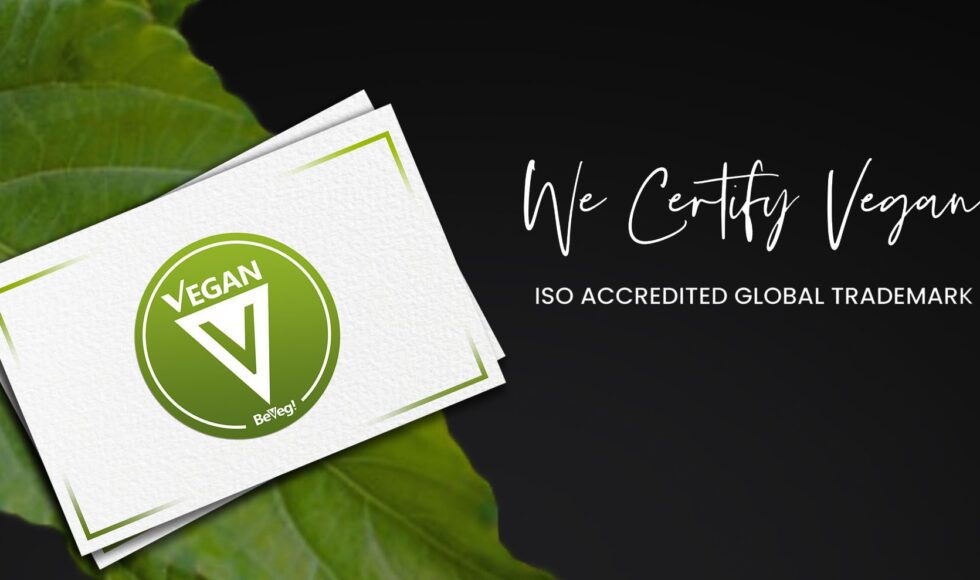

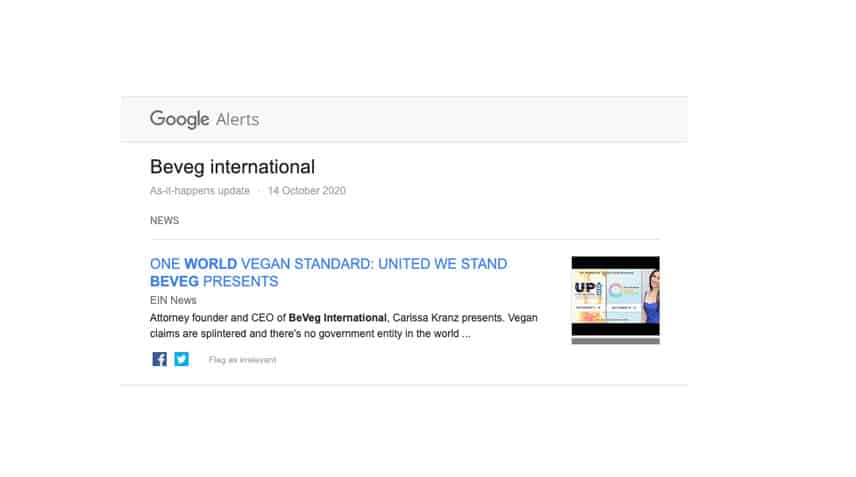
 To read the full article please visit
To read the full article please visit 
